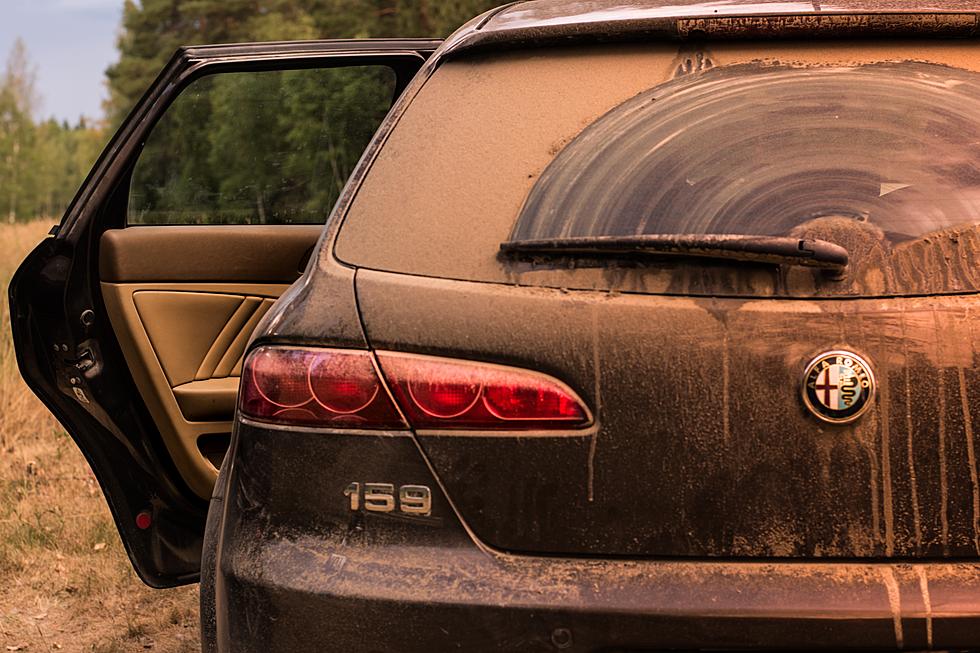
What Is Texas’s Dustiest City and How Does Your Town Rank?
West Texas is known to be dusty. Dust storms sometimes march across the West Texas countryside like an unrelenting army. The effects of dust can be devastating.
In Illinois, 7 are dead and 37 hospitalized after a blinding dust storm caused pileups on Interstate 55 north of Farmersville.
Here in West Texas, similar dust storms have resulted in many deaths and major damage. History's biggest dust event was known as "Black Sunday", April 14th, 1935. It was part of the larger Dust Bowl event that affected the Great Plains region during the Great Depression Era.
That event especially hard hit the Texas Panhandle. Reports stated that the storm produced winds in excess of 60 miles an hour and a wall of dust over 8,000 feet high. The storm was so severe that it blacked out the sun.
It is generally believed that the soils of West Texas are more conducive to creating dust than the soil types in other regions of Texas. This is particularly true in Lubbock, Midland/Odessa, El Paso, Laredo and Amarillo.
Using National Oceanic and Atmospheric Administrative Data, it is possible to do a ranking of Texas cities based on annual average particulate matter concentrations (in micrograms per cubic meter).
Doing so reveals that many West Texas cities are represented on the list. In creating a list of the dustiest cities in Texas, many cities in other parts of the state are also represented.
It is important to note that the dusty nature of the soil is just one part of the equation that leads to dusty atmospheric conditions. Other factors include weather patterns and human activities. Taking all this into consideration, here is the list of the 25 dustiest cities in Texas based on average particulate matter concentrations for the years 2018-2020 as reported from NOAA's Air Quality Index website:
- El Paso - 9.4 µg/m³
- Midland - 8.7 µg/m³
- Dallas-Fort Worth - 8.0 µg/m³
- Houston - 7.6 µg/m³
- Austin - 7.3 µg/m³
- San Antonio - 7.2 µg/m³
- Laredo - 6.7 µg/m³
- Beaumont-Port Arthur - 6.6 µg/m³
- McAllen-Edinburg-Mission - 6.4 µg/m³
- Longview-Marshall - 6.2 µg/m³
- Tyler - 6.1 µg/m³
- Victoria - 6.0 µg/m³
- Corpus Christi - 5.8 µg/m³
- Brownsville-Harlingen-Raymondville - 5.5 µg/m³
- Lubbock - 5.3 µg/m³
- Odessa - 5.1 µg/m³
- Killeen-Temple - 4.9 µg/m³
- Abilene-Sweetwater - 4.6 µg/m³
- Wichita Falls - 4.4 µg/m³
- Amarillo - 4.3 µg/m³
- San Angelo - 4.2 µg/m³
- Sherman-Denison - 4.0 µg/m³
- Waco - 3.8 µg/m³
- Bryan-College Station - 3.7 µg/m³
- Texarkana - 3.5 µg/m³
This list is pretty predictable. There are some surprises. Coastal cities like Victoria and Corpus Christi have more dust than places like Lubbock, Odessa, Abilene or San Angelo in West Texas. In fact, San Angelo beats ever other city in West Texas.
The least dusty city on average is Texarkana. That might be a shocker for some who live there. Although they would tend to be the most muddy at certain times of the year.
It is important to note that dust can aggravate a number of health conditions. These include respiratory problems like COPD, cardiovascular disease, eye and throat irritation and allergies.
A recent study also showed that exposure to high levels of particulate matter over long periods is linked to an increased risk of premature death. I've nearly had a few heart attacks seeing how fast my just-washed car gets dirty in the West Texas air.
Maybe all the hand washing is leading to a stronger heart. Unfortunately, there's no research to back that up.

